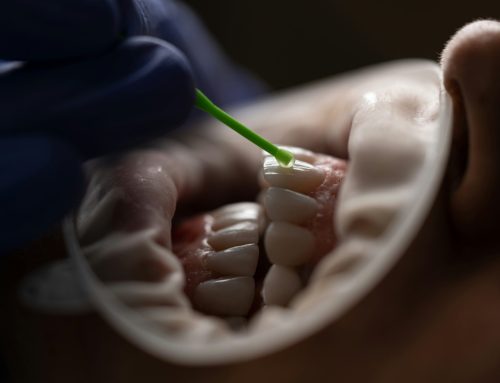When you see that perfect celebrity smile on screen, there is a high probability they’ve invested in some sort of cosmetic dentistry procedure. The most popular one is dental veneers. Recognize any of these names?
- Zac Efron
- Tom Cruise
- Miley Cyrus
- George Clooney
- Demi Moore
- David Beckham
- Morgan Freeman
- Emma Watson
You don’t have to be born with perfect teeth to achieve the smile you’ve always wanted. If you’ve ever struggled with:
- Stains and discolouration whitening won’t fix
- Chipped, cracked, or broken teeth
- The shape or size of your teeth
- Crooked teeth
- Gaps between your teeth
- Or are generally unhappy with your smile-
You may want to consider dental veneers.
They’re a popular solution that allows you to smile with confidence. Read on to learn more about what veneers are, the procedure, your options, and what you can expect from the entire process.
What are Veneers?
Veneers are simply coverings that fit over the front surface of your teeth. They enhance your smile and are considered a cosmetic procedure, which means they typically aren’t covered by insurance. They differ from crowns, which are intended to repair a damaged tooth. In order to be eligible for veneers, you need to have any underlying issues, such as cavities, addressed first.
They’re the go-to solution for a variety of cosmetic concerns. They come in a tooth-coloured material that is meant to blend right in. They are often made in porcelain or resin-composite materials, each with its own set of pros and cons.
Porcelain veneers
Porcelain veneers are the most popular solution because they can last more than 20 years with the proper care. They are designed to be a custom fit and are more stain resistant than composite veneers.
They’re also more durable than composite veneers, however, they are more expensive to repair if you accidentally chip a tooth because the entire veneer will have to be replaced.
Composite veneers
Composite veneers are the runner-up to porcelain veneers. Composite resin is made of the same material used for dental bonding and is less expensive than porcelain veneers. You can still benefit from a tooth colour match but composite veneers are more likely to stain over time.
The benefit is that if a composite veneer chips, it’s easier to repair than porcelain veneers. You can simply fix the chipped area instead of replacing the entire veneer. Unlike porcelain veneers, this solution typically lasts only 5-7 years.
What to Expect From Your Veneer Procedure
Veneers have a few differences when it comes to their procedure, depending on the type you get. Typically, the process starts out the same. First, you’ll find a shade that matches your smile so that the veneer looks natural.
If you’ve opted for porcelain veneers, you’ll have a thin layer of enamel removed to make way for your fresh new veneers. Expect to get a mould of your teeth taken, which is then sent to a lab to create the perfect match. Typically, you’ll wait 2-4 weeks before your next appointment. Don’t worry – you’ll have temporary veneers on during this time to protect your teeth.
Once they’re installed, you’ll likely get a few adjustments and then teeth cleaning before they’re bonded using special dental cement.
Composite veneers are a faster procedure – you’ll have everything taken care of in just one day. They’re sculpted right onto your teeth and don’t require enamel removal before their placement.
Caring For Your Veneers
The good news is that you can get right back to regular life after your appointment. Once the freezing wears off, you can eat and drink as you usually would. If you feel any rough spots on your teeth, this could mean a bit of extra cement is left over. This should wear down after a few days, but if you’ve noticed it after several weeks, call your dentist to book an appointment. They can simply smooth them out, so it feels more comfortable.
However, there are a few things you can be mindful of to ensure that your veneers last a long time. Some of these include:
- Chewing on your back teeth, especially with harder foods.
- Wearing a bite guard if you tend to grind or clench your teeth at night.
- Not using your teeth to chew fingernails, open packages, or chew on a pen/pencil.
- Avoiding teeth-whitening as it can scratch your veneers.
You’ll also want to brush twice daily with nonabrasive fluoride toothpaste and regularly book your dental cleanings.
Dental veneers are a great option if you want to improve the cosmetic appearance of your teeth. They can hide imperfections such as cracks, chips, gaps, or discolouration. The longevity and price of your veneers will depend on what material you decide is best for you. Chatting with your dentist about your concerns and smile goals is the best way to ensure you get the right procedure to boost your confidence. Contact your local Calgary dentists to find out if veneers are your best next step.
Have you considered getting dental veneers? Do you have any concerns about them? Share your comments below to help other readers decide on the best route for their dental plan.






Leave A Comment